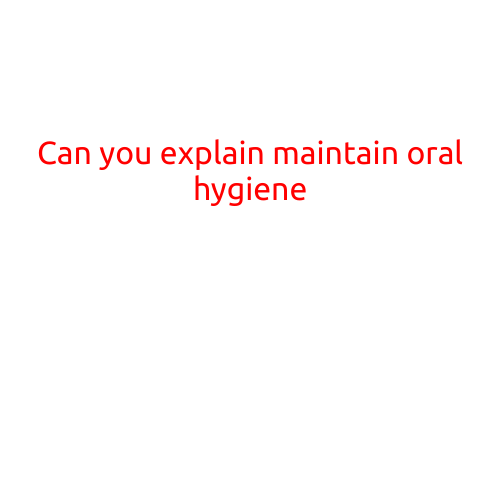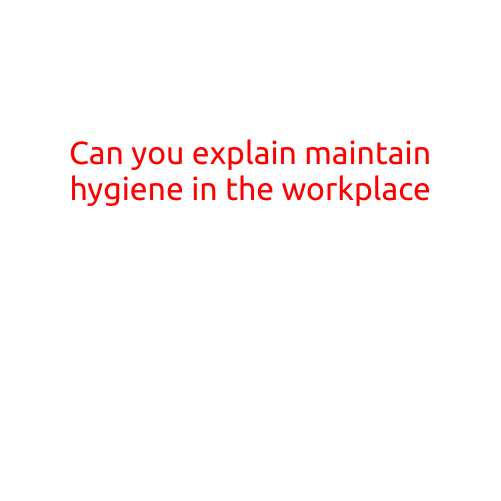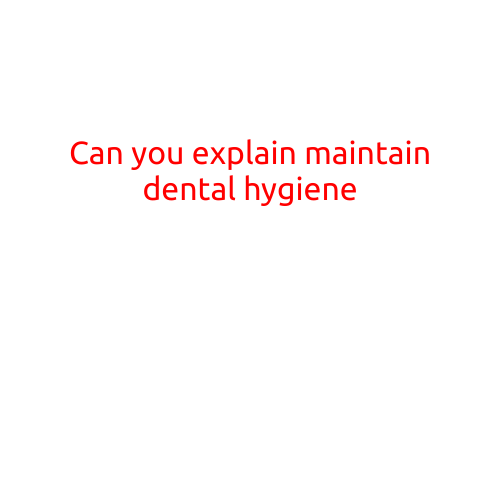
Can You Explain Practice Good Hygiene Habits?
Good hygiene practices are essential for maintaining a healthy and clean environment. Practicing good hygiene habits helps prevent the spread of illnesses, reduces the risk of infections, and keeps our bodies and surroundings clean. In this article, we will discuss the importance of practicing good hygiene habits and provide tips on how to incorporate them into your daily routine.
Why is Hygiene Important?
Hygiene is crucial for our overall health and well-being. When we don’t practice good hygiene habits, we put ourselves and others at risk of getting sick. Good hygiene practices help prevent the spread of diseases, reduce the risk of infections, and maintain a clean and healthy environment. Additionally, good hygiene habits can also boost our self-confidence, improve our social relationships, and enhance our overall quality of life.
Basic Hygiene Practices
Here are some basic hygiene practices that everyone should follow:
- Wash your hands regularly: Washing your hands with soap and water is one of the simplest and most effective ways to prevent the spread of illnesses. Wash your hands:
- Before eating or preparing food
- After using the bathroom or changing a diaper
- After blowing your nose, coughing, or sneezing
- After touching animals or their waste
- After being in contact with someone who is sick
- After touching garbage or dirty surfaces
- Bath or shower regularly: Bathing or showering regularly helps keep your body clean and free of dirt, sweat, and bacteria. Aim to bathe or shower at least once a day, and more often if you exercise or work outdoors.
- Brush and floss your teeth regularly: Good oral hygiene is essential for maintaining healthy teeth and gums. Brush your teeth at least twice a day with a fluoride toothpaste and floss once a day to remove plaque and food particles.
- Use deodorant or antiperspirant: Using deodorant or antiperspirant helps control body odor and prevent sweat from building up. Apply these products after showering or bathing, and reapply throughout the day if necessary.
- Practice good nail hygiene: Keep your nails clean and trimmed to prevent dirt and bacteria from accumulating under your nails. Avoid sharing nail care tools and wash your hands before and after handling your nails.
- Wear clean clothes: Wear clean clothes every day and wash your clothes regularly to prevent the buildup of dirt, sweat, and bacteria.
- Use clean towels: Use clean towels every day and wash them regularly to prevent the buildup of bacteria and mildew.
- Clean your surroundings: Clean your living space regularly to prevent the buildup of dirt, dust, and bacteria. Pay attention to high-touch areas like doorknobs, light switches, and countertops.
Additional Tips
In addition to practicing good hygiene habits, here are some additional tips to help you maintain a healthy and clean environment:
- Avoid close contact with people who are sick
- Avoid sharing personal items like hairbrushes, combs, and Razors
- Avoid touching your face, especially your eyes, mouth, and nose
- Keep your hair clean and trimmed
- Practice good foot hygiene by washing your feet regularly and wearing clean socks
Conclusion
Practicing good hygiene habits is essential for maintaining a healthy and clean environment. By following the basic hygiene practices outlined above and incorporating additional tips into your daily routine, you can reduce the risk of illnesses, maintain a clean and healthy environment, and boost your overall well-being. Remember, good hygiene habits are simple to follow and have a significant impact on our health and quality of life.





